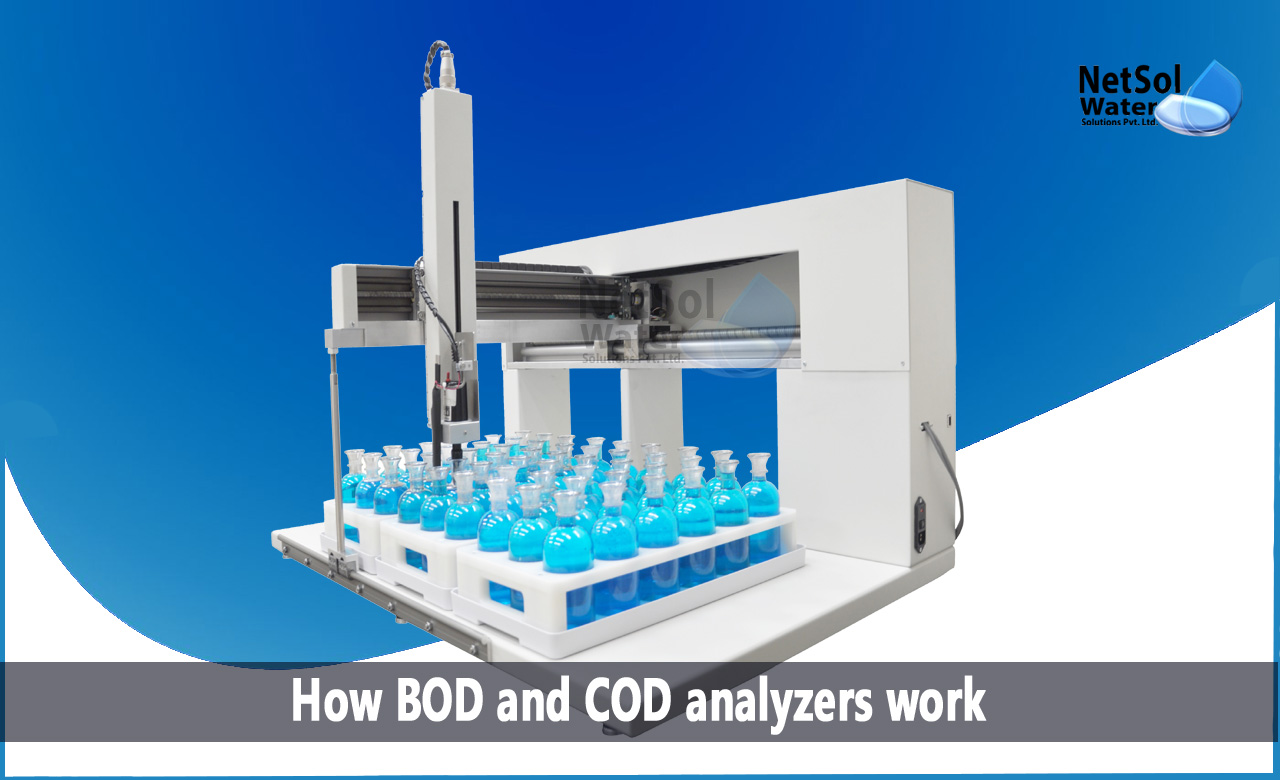How BOD and COD analyzers work and their importance in STP & ETP Plant?
Sewage and effluent treatment plants are responsible for treating wastewater before it is released back into the environment. One of the most critical parameters used to measure the effectiveness of wastewater treatment is the biochemical oxygen demand (BOD) and chemical oxygen demand (COD). BOD and COD analyzers are used to measure these parameters and provide valuable information on the effectiveness of the wastewater treatment process.
In this blog, we will discuss how BOD and COD analyzers work and their importance in sewage and effluent treatment plants.
How Does BOD Analyzer Work?
BOD measures the amount of oxygen required by microorganisms to break down organic matter present in wastewater. BOD analyzers are used to measure the BOD of wastewater samples. The BOD analyzer works by incubating the wastewater sample in a sealed container for a specific period, during which the microorganisms in the sample consume the organic matter and use up the available oxygen. The decrease in oxygen concentration is then measured using a dissolved oxygen sensor. The amount of oxygen consumed is directly proportional to the BOD value of the sample.
BOD analyzers are essential tools in sewage and effluent treatment plants as they provide critical information on the efficiency of the treatment process. A high BOD value indicates that the wastewater contains high levels of organic matter, which can lead to environmental pollution if not adequately treated.
How Does COD Analyzer Work?
COD measures the amount of oxygen required to oxidize all the organic and inorganic matter present in the wastewater sample. COD analyzers work by adding a strong oxidizing agent, such as potassium dichromate, to the wastewater sample, which oxidizes all the organic and inorganic matter present in the sample. The amount of oxidizing agent used is then measured using a colorimeter or spectrophotometer, and the COD value is calculated based on the amount of oxidizing agent used.
COD analyzers are widely used in sewage and effluent treatment plants as they provide valuable information on the organic and inorganic content of wastewater. A high COD value indicates that the wastewater contains high levels of organic and inorganic matter, which can be challenging to treat using conventional treatment methods.
Importance of BOD and COD Analyzers in Sewage and Effluent Treatment Plants:
BOD and COD analyzers are essential tools in sewage and effluent treatment plants as they provide valuable information on the effectiveness of the treatment process. By measuring the BOD and COD values of wastewater samples, operators can optimize the treatment process to ensure maximum removal of organic and inorganic matter from the wastewater.
Moreover, BOD and COD analyzers help to ensure compliance with environmental regulations. Many countries have regulations on the maximum allowable levels of BOD and COD in wastewater before it can be discharged back into the environment. By using BOD and COD analyzers, sewage and effluent treatment plant operators can ensure that their discharge meets the required environmental standards.
Conclusion:
BOD and COD analyzers are essential tools in sewage and effluent treatment plants as they provide valuable information on the effectiveness of the treatment process. By measuring the BOD and COD values of wastewater samples, operators can optimize the treatment process and ensure compliance with environmental regulations. BOD and COD analyzers are critical for maintaining a healthy environment and protecting public health.
Netsol Water is Greater Noida-based leading water & wastewater treatment plant manufacturer. We are industry's most demanding company based on client review and work quality. We are known as best industrial RO plant manufacturer, sewage treatment plant manufacturer, and effluent treatment plant manufacturers. Apart from this 24x7 customer support is our USP. Call on +91-9650608473, or write us at enquiry@netsolwater.com for any support, inquiry or product-purchase related query.



